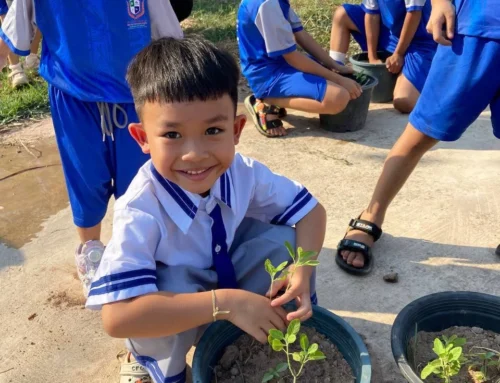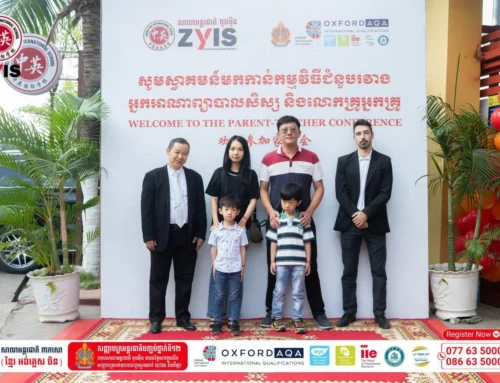Many parents in Cambodia want to help their children succeed in school but feel unsure how—especially if they’re working long hours or aren’t fluent in English. The good news? You don’t need to be a teacher or speak perfect English to support your child’s learning at home. With a few simple strategies and the right mindset, you can make a big impact on their education and confidence.
Here’s how you can stay involved, even with a busy schedule or limited language skills.
1. Create a Learning-Friendly Home Environment
Children learn best in a space that feels calm, organized, and supportive. You don’t need a separate study room—just a small, clean area with good lighting and few distractions. Make sure your child has access to basic supplies like pencils, paper, books, and, if possible, a quiet corner for reading or homework.
-
Encourage a consistent routine (e.g., homework after dinner or before bed)
-
Limit screen time during learning hours
-
Praise effort, not just results
2. Use Your First Language to Help
If you’re not fluent in English, that’s okay. Use your strongest language—Khmer or another—to explain concepts or ask questions. Research shows that strong skills in a first language help children learn additional languages more effectively.
-
Talk with your child about what they learned at school in your home language
-
Ask them to teach you a new English word each day—it builds confidence for both of you
-
Use Khmer-English storybooks to read together and build vocabulary
3. Stay Connected with the School
Even if you can’t attend every school meeting, stay in touch with teachers. Most schools in Cambodia are happy to provide updates or materials in Khmer if needed. Don’t be afraid to ask questions, request help, or clarify assignments.
-
Communicate via text or messaging apps if in-person visits aren’t possible
-
Let teachers know about your child’s strengths and challenges
-
Ask for Khmer explanations if homework instructions are unclear
4. Use Everyday Life as a Learning Opportunity
Learning doesn’t only happen at a desk. Children can develop math, reading, and thinking skills through daily life activities:
-
Let them help with cooking (measuring, counting, reading labels)
-
Talk about prices at the market (basic math and budgeting)
-
Tell stories or talk about family history (language and memory skills)
These everyday conversations help build a love for learning and strengthen problem-solving abilities.
5. Take Advantage of Free Resources
There are free and low-cost learning resources available in Cambodia and online:
-
Khmer-language storybooks and educational videos
-
Mobile apps with simple English games or phonics activities
-
YouTube channels that teach English and math through songs or visuals
-
Community libraries or learning centers in Phnom Penh and major towns
Many schools also share printable worksheets or homework help via social media or parent groups.
You don’t need to be perfect to be helpful. By showing interest, encouraging curiosity, and staying involved in small ways, you are building the foundation for your child’s lifelong love of learning.
If the information about the school is not accurate and insufficient, Contact us.
Do you want to register your school? Click here.







